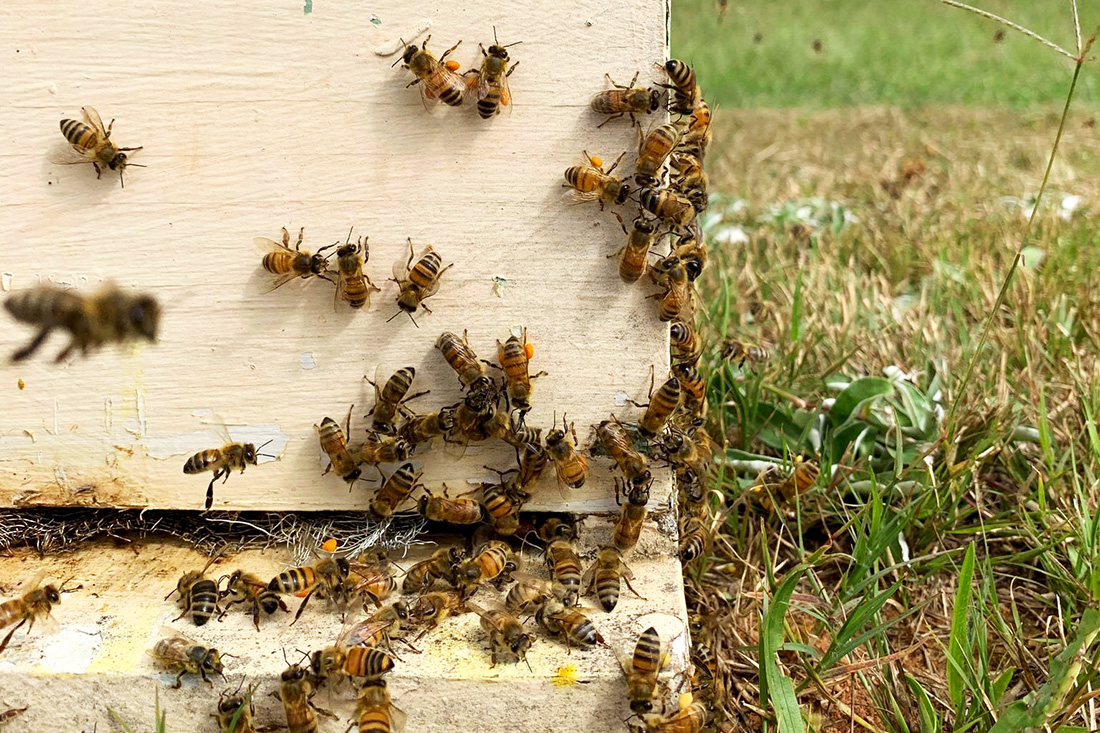Whether your biggest concern is your farm or your family, an Atlanta workshop April 12-13 will address environmental concerns of interest to you.
Key topics include:
- Ways to ensure that your well water is safe.
- How to care for your septic system.
- Safe ways to handle pesticides and fertilizers.
Farm*A*Syst/Home*A*Syst concepts and materials will be the focus of the workshop. The Farm*A*Syst/Home*A*Syst program is an interagency partnership. It provides farmers and homeowners information and a voluntary means to manage their farms or homes to prevent pollution and ensure their families' well-being.
The workshop will be at the Federal Building at 61 Forsyth St., SW, in Atlanta. It's free, but you must pre-register to attend.
To register, or for more information, contact Lisa Ann McKinley at (404) 562-9403. Or e-mail mckinley.lisa@epa.gov.
Published on 03/01/00
How to Keep Your Farm Or Family Safer
Dan Rahn is a news editor with the University of Georgia College of Agricultural and Environmental Sciences.
Experts/Sources:
 CAES News
CAES News
Outstanding 4-H youth and supporters celebrated at Georgia 4-H State Congress
08/08/25 Josie Smith
Georgia 4-H recognized the achievements of youth participants, adult leaders and community supporters during the annual 4-H State Congress, held July 23–26 at the Crowne Plaza Ravinia in Atlanta. This weeklong capstone event featured state-level competition in Project Achievement and Leadership in Action for top 4-H’ers from across the state.
 CAES News
CAES News
Community-driven agriculture grows more than just produce
08/07/25 Emily Cabrera
discover.caes.uga.edu
In Winterville, Georgia, a small market grew into a movement. Meet the people behind the Marigold Collective, where farmers, volunteers and neighbors band together to transform fresh food into shared growth. With support from University of Georgia Cooperative Extension, Marigold Collective is working to make local food more accessible while creating economic opportunities for small agribusinesses.
 CAES News
CAES News
Keeping your tomato plants healthy: Managing common pests and diseases of homegrown tomatoes
08/06/25 Emily Cabrera
cultivate.caes.uga.edu
We have already ranked the best tomato cultivars for stacking high on a slice of bread and covered the essentials of pruning and staking to tame those wild, vining plants. Now comes the gritty middle of the growing season — when the heat bears down and the battle against pests, diseases and plant stress ensues. Whether you have only just started harvesting or are already preparing for a second planting to carry you into fall, Georgia’s hot, humid climate creates the perfect environment for problems.
 CAES News
CAES News
Scientists identify high viral loads, mite resistance as key factors in recent honey bee losses
08/04/25 Jordan Powers
Earlier this year, commercial beekeepers across the U.S. faced unprecedented winter colony losses, with some reporting over 60% of hives perishing — more than double the typical overwintering loss rates. Hobbyists and sideliners — those who keep bees as a secondary source of income — also saw catastrophic declines, with total economic impacts to beekeepers estimated at over $600 million. Now, scientists are linking the losses to high viral loads and mite resistance as they work to develop solutions to protect the industry moving forward.
 CAES News
CAES News
Cultivating Georgia-focused scholars through New Faculty Tour
08/01/25 Roy Parry
outreach.uga.edu
A group of new University of Georgia faculty members will leave Aug. 4 on a five-day trip across the state as part of the 2025 UGA New Faculty Tour, designed to help them connect their research and expertise to the needs and opportunities of rural communities and show them how deeply their university is tied to Georgia. Traveling through 45 counties and making 19 total stops in 15 cities, the tour highlights the state’s rich economic, geographic, social, and cultural diversity — offering faculty insight into how their work can support and strengthen communities across Georgia.
 CAES News
CAES News
Agricultural climatologist connects science to everyday life for farmers and communities
07/31/25 Maria M. Lameiras
cultivate.caes.uga.edu
From her cozy office at the J. Phil Campbell Research and Education Center in Watkinsville, Georgia, Pam Knox has a clear view of the sky, and that is the way she likes it. In fact, she’s built a career on it.
“One of the nicest things about studying meteorology is I can look outside the window and understand what's going on in the atmosphere, what's causing the kinds of clouds we get, and where the rain is happening and where it's not,” said Knox, director of the University of Georgia Weather Network.
